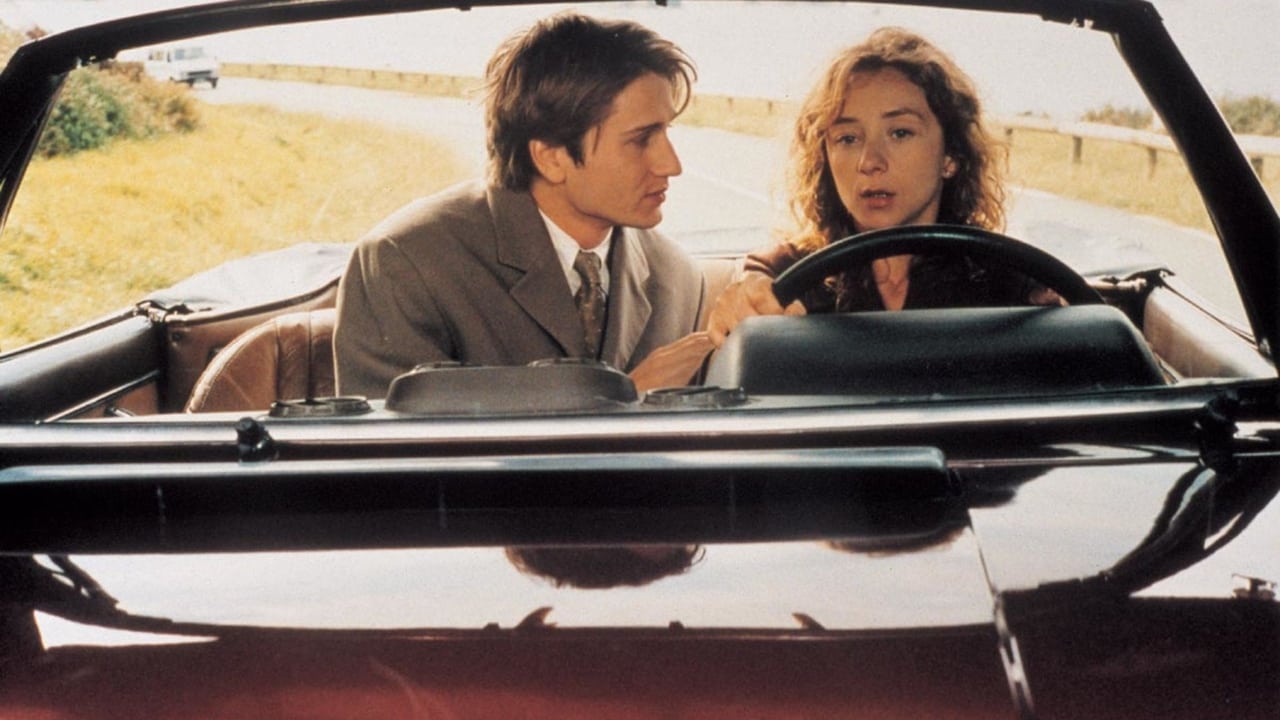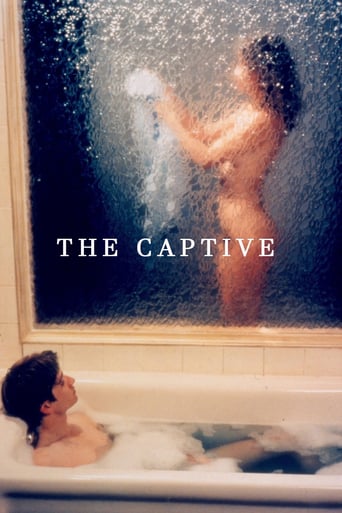

Wonderful character development!
... View MoreFantastic!
... View MoreThe movie's not perfect, but it sticks the landing of its message. It was engaging - thrilling at times - and I personally thought it was a great time.
... View MoreThis movie feels like it was made purely to piss off people who want good shows
... View MoreA quiet, intense, low key look at the dysfunctional relationship between a very rich young man and the young woman he 'keeps' at his house. Is she trapped or is he? Who's really the captive? Not much happens in terms of events, the film is mostly in the details, but those details are great. The two leads give amazingly subtle performances, and the photography and lighting – while never showy – are magnificent. One of the most interesting and effective 'cold' looks I've seen in a film. Beautiful compositions. A film for those interested in complexity of character, a director using image and mood to tell a story, and patience to allow the slow accumulation of details to add up over time to something very special.
... View MoreI'm currently studying Proust, and so looked forward to this. I figured the other review HAD to be wrong about how bad this was. But they weren't! I love slow, ponderous French movies. But this one absolutely killed me, bludgeoned me with a big fat dull fence post and left me by the side of one of the many long roads I'd watched the actors drive interminably and wordlessly down. I finally had to watch it on fast forward, because NOTHING HAPPENS time and time and time again for minutes at a stretch. I don't envy a director/scriptwriter who takes Proust on, because so much of the richness of his characters and stories is interior. But, God! You've got to at least TRY to convey those depths by something other than static shots of actors doing and saying nothing. Boo. Hiss. Just awful.
... View MoreHaving recently discovered French actress Sylvie Testud when I saw The Chateau, I was interested in this film because she's in it. I haven't read the story that the film is supposedly based on so I had nothing to compare it to when I saw it and therefore I went in without any preconceived notions. And with a film like this, a film that doesn't operate on any conventional filmmaking level, that is a very good thing. This movie doesn't try to tell you what to think or feel about its characters; there is none of the contrivances so common in American movies, none of the manipulation. It just simply presents them and follows them and allows them to do what they do without the camera cutting away too soon for fear that the audience will get bored when there's not a lot "going on" in a scene - in fact some of the best scenes in the film have hardly any movement at all. And this is not done in a self-conscious, 'arty' let's-create-mood sort of way, which makes watching it - or rather experiencing it - even more hypnotic.This is a film that must be experienced more than once, I would say: you're not really sure what's transpired OR how you feel about what you've witnessed upon a first viewing because it doesn't hit all the 'buttons' that a commercial film is compelled to hit. And Testud is brilliant, managing to imply complexity without demonstrating it (if that makes sense) - she's beyond subtle, beyond sublime.
... View More'La Captive' is, above all, a detective story. It opens, in scenes reminiscent of 'Vertigo', with a man following the movements of a woman later revealed to be his lover. It actually opens with him looking at her in a home video as she sits on the beach with her friend Andree. He tries to make out what she's saying, and the whole film is his attempt to read and interpret this woman, this so-called captive (the next book in Proust's 'In Search of Lost Time' is called 'The Fugitive').The first word he says, though, as he watches this video, is 'je', 'I', and this is the crux of the mystery. Is he reading her with too much 'I', too much subjective misinterpretation, to the point where her personality is literally squeezed to nothing (her name is changed from Proust's Albertine to Ariane = a rien), vanishing from the film? Or is it her 'I' that Simon tries to solve, as he sets himself the impossible task of fully possessing, fully knowing another person? Who is Ariane's 'je vous aime bien' referring to - Simon or her friend sitting beside her? The title refers to a female captive, but the real prisoner here is Simon, wandering in a labyrinth of jealousy, suspicions, half-clues and lies.When a great filmmaker films a great book, it is instructive to note what she has left out as much as she leaves in. 'La Prisonniere' (why the name change?) is the fifth book in Proust's giant novel, but those thousands of pages of Proustian backstory are absent, the tortured obsession of the narrator with Albertine, his alarmed discovery of different sexualities (repressing his own?), his past (no madeleines here!), his desires, his art, his self-justifications. Indeed, where Ruiz's 'Le Temps Retrouve' is as close to Proustian FULLNESS as we are likely to get, 'La Captive' is Proust without the Proust. Set in a sort of timeless present (modern dress, period locations and mores), where Proust glides in a liberated chronology, 'La Captive' discards tastes, smells, music, comedy, society (no Charlus!), nature, time.Proust's 'La Captive' is on one level even more suffocating than this film, filled largely with the agonisings and imaginings in the head of one man who never leaves his room - are Simon's wanderings here mental peregrinations, explaining the film's air of unreality? About halfway through the book, the reader is given blessed relief with a 100-page musical soiree, which opens it from the private to the public, the analytic to the observational, the tragic to the comic. This is completely absent here, as Akerman goes for a relentless narrative of cat-and-mouse jealousy reminiscent of Chabrol's 'L'Enfer', pushed so solemnly that it eventually becomes comic. Similarly, the underlying, organising motif of the book, music, linking the narrator's awareness and transcendence of his locale, his memories of his past, his ideals for art, and Albertine, are mostly gone, making the film much more austere, and also minimising Albertine/Ariane (one exception is the beautiful sequence where Albertine and a neighbour , both birds behind cages, sing 'Cosi Fan Tutti' (women are all like that - captives?) to each other from their balconies, a breath of fresh air in their stifling lives, from another tale (like 'Vertigo' of women subjected to dangerous and repressive male jealousy).It seems strange that Akerman should choose to follow Proust's narrative trajectory, emphasising mad male obsessiveness, rather than somehow rescuing Albertine, who is as indistinct here - as an ephemeral construct in Simon's mind - as in the book. Even her final gesture of liberation is denied, with the suggestion that Simon has killed her, his 'I' literally submerging her in the beach from which, in that opening video, she emerged.Akerman's procedures are very similar to those of d'Oliveira's 'La Lettre', another transposing of an alien past to modern dress, where the cultural codes are not adapted, and hence jar, making us ask questions about the director's seemingly capricious intentions. The incongruity between the glossy imagery and the austere narrative creates a compelling mystery beyond that of plot, also reminiscent of Phillipe Garrel's 'Le vent de la nuit'. Still, I'll take Proust or Ruiz anyday. Pseuds may be interested to know that one of the machinistes was a certain Christian Metz.
... View More